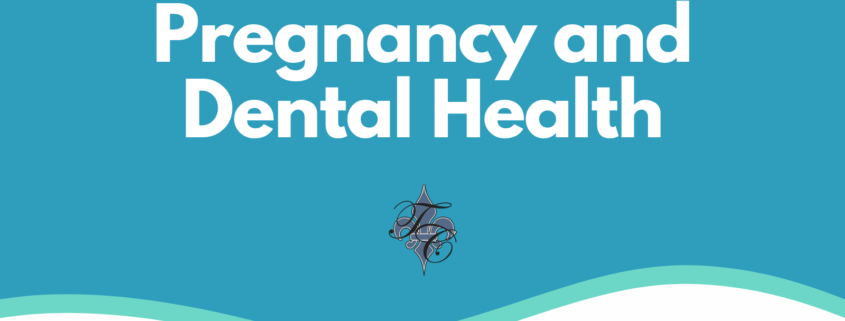Pregnancy and Dental Health
Oral health is one crucial component of overall health, and this is even more true when you’re pregnant.
Did you know that studies have revealed a connection between periodontitis — also known as gum disease — and premature birth? Gum disease also has been linked to low birthweight. That’s why it’s so important for you to take care of your teeth and gums while you’re expecting.
How does pregnancy affect your dental health?
The changes in your body you experience during pregnancy can have a big impact on your teeth and gums. One of the most obvious signs of pregnancy is bleeding gums. When you’re pregnant, there’s more blood flowing through your veins, a higher level of acid in your mouth, and a drastic rise in hormones.
All of these changes can cause problems with your oral health. These issues can include:
- Gingivitis: Do your gums bleed when you brush? Are your gums red, swollen and/or sore? Then you might have gingivitis. Progesterone, a hormone that is heightened during pregnancy, can lead to gingivitis, so it’s a common occurrence in pregnant women. You’ll need to see a dentist to treat the gingivitis before it gets more serious and turns into periodontitis (gum disease).
- Tooth loss: Just like it causes gingivitis, excess progesterone during pregnancy — along with estrogen — can impact the tissues and bones that keep your teeth intact. If you feel loose teeth while you’re pregnant, this is normal.
- Periodontitis: If all of the above conditions are heightened to include extreme swelling and infection in your gums and the bones in your mouth, then you could have periodontitis. This is a serious gum disease. It can also cause your teeth to become loose. You’ll need to get this treated immediately.
- Pregnancy tumors: Tumor sounds like a scary word, but pregnancy tumors are not cancerous, but instead, lumps that form in between teeth — on already swollen gums. The tumors can cause your mouth to bleed. They could be caused by having too much plaque. Flossing will help to eliminate plaque, but if the pregnancy tumors don’t go away on their own, you might end up having them surgically removed after you have your baby.
- Tooth decay: Tooth decay — or when the enamel that protects your tooth breaks down — is caused by acid in your mouth. Because pregnancy creates higher levels of acid in your mouth, tooth decay is more common among women who are expecting. You’ll have even higher acidity levels if you’re experiencing a lot of morning sickness and vomiting during pregnancy.
How you can help you and your unborn child
The myth that it’s unsafe to visit your dentist for cleanings or X-rays while you’re pregnant is just that: a myth. Visiting your dentist can be integral in keeping your mouth (and thus your baby) healthy while you’re expecting.
You should notify your dentist as soon as you know about your pregnancy so he or she can adjust treatment, procedures and medications. The American Pregnancy Association says the second trimester is the usually the best time for minor dental work (i.e. cleaning, fillings).



